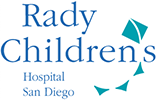Health Care Providers: Cardiologists
What Is Cardiology?
Cardiology (kar-dee-OL-uh-jee) is the medical specialty that diagnosis and treats diseases and problems of the cardiovascular system (the heart and blood vessels).
What Is a Cardiologist?
A cardiologist (kar-dee-OL-uh-jist) is a doctor who diagnoses and treats medical problems that affect the heart and blood vessels.
Why Would Someone Need One?
Cardiologists provide care for people with problems such as:
- heart murmurs
- high cholesterol
- high blood pressure (hypertension)
- abnormal heart rhythms (arrhythmias)
- heart defects
- heart disease
They do medical tests and procedures such as:
- echocardiogram (“echo”)
- cardiac catheterization
- heart valve repair and replacement
- surgery to repair heart defects
- heart transplant
What Is Their Training?
Cardiologist training usually includes:
- 4 years of pre-medical education at a college or university
- 4 years of medical school — a medical degree (MD) or doctor of osteopathic medicine (DO) degree
- 3 years of training in a pediatric residency program
- 3 years of training in a pediatric cardiology fellowship. A “fellow” is a doctor who undergoes more specialty training after completing medical school and a residency.
They also might have:
- expertise in a subspecialty area (for example, focusing on heart transplants)
Good to Know
Doctors who might refer a baby or child to see a cardiologist include:
- obstetricians or maternal-fetal specialists
- neonatologists
- pediatricians

© 1995- The Nemours Foundation. KidsHealth® is a registered trademark of The Nemours Foundation. All rights reserved.
Images sourced by The Nemours Foundation and Getty Images.
